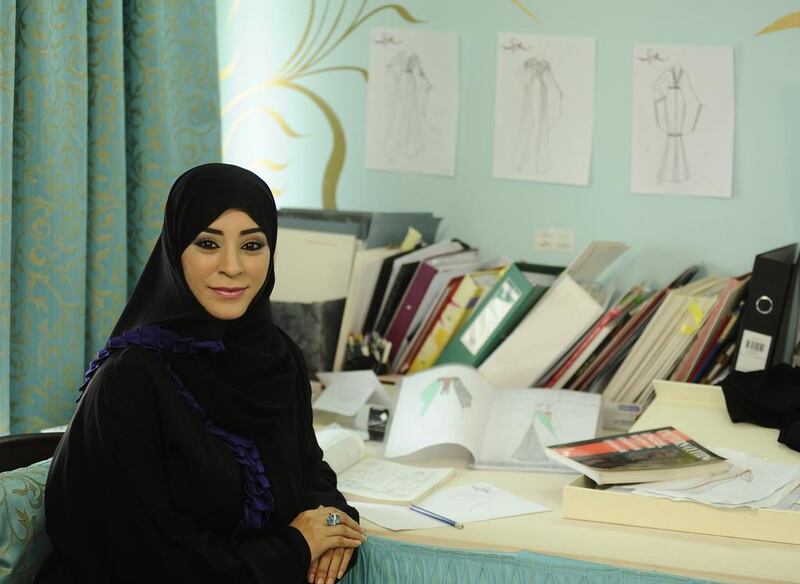The Emirati entrepreneur Aysha Al Dhaheri is the managing director and founder of Oushi Fashion Designing, an abaya and dress fashion house. She also works as an engineer at Al Ain Municipality.
How would you describe your financial journey so far?
It’s been a long journey and I have learnt a lot of things since I started my own business in 2007. My background is engineering, not business, so I’ve had to adapt and learn quickly.
Are you a spender or a saver?
In business, I have to weigh up the priorities. Sometimes, for example, we need to decide if buying a sewing machine for the workshop is really the right thing to do or whether to just import the materials from abroad. In my personal life, I spend money on entertaining and my studies. I like going to the theatre and went to see Cinderella on Ice as I like live entertainment. In my studies, I finished my masters in green building last year and completed a project management programme at UAE University this year.
What’s your philosophy regarding money?
Saving for me is hard, as I like to live in the moment. You don’t know when you’ll die, after all. I don’t have a family but I still spend my time and money. In fashion, I think about the vision and don’t think about myself. I think about my employees.
How did you come to set up your own fashion design business?
Since I was young I’ve always been studying and drawing, but my family also wanted me to study a high-level degree like architecture or engineering. So I had to go down that route. But I’ve always liked fashion designing and when I finished my engineering degree, they said you have to do a career in engineering, which I did. But fashion was always in my heart. When they realised how much of a passion it was for me, they supported me in setting up my business.
What are the challenges of doing business here?
There are quite a few challenges. But probably the biggest challenge I faced was when I wanted to find a market abroad for my products. So I travelled by myself to Guangzhou, to Kuala Lumpur, Hong Kong and Doha to find markets. But I still needed help. Eventually, I found out about the export assistance provided by the Abu Dhabi Department of Economic Development.
Did you make any mistakes along the way?
My first mistake was depending only on myself and thinking I could do everything myself. I did everything with the business myself for three years until I realised I needed more help. Then when I hired a tailor, my next mistake was believing I could provide in-house training to that person. This took too much time and was not realistic. Now people have to have training before they join the business.
Do you believe in planning for the future?
I do believe in planning for the future but I plan more for business than myself. At the moment, I’m preoccupied with finding a buyer to export to. In Doha, the abaya market is growing and they’re depending on sellers from Dubai. So there are opportunities to export there.
Is money important to you?
In one sense it’s very important to me. If you don’t have money then you don’t have a car, a company or a house. Money is at the end of a long chain, which if broken, you can’t get success. I see money as something you have to use to get a benefit from, but also something that should not be the focal point of your life.
What is your idea of financial freedom?
I’m not sure I believe in the phrase “financial freedom”. If I acted like I was free of financial constraints, I would buy the car I like and the house I like without acting responsibly. I believe there has to be a framework around spending money.
What do you enjoy spending money on?
I spend money on many things but I also try to spend money on charity and other people too. I spend money on gifts for people who are kind, as I like people to be happy.
* Tom Arnold






